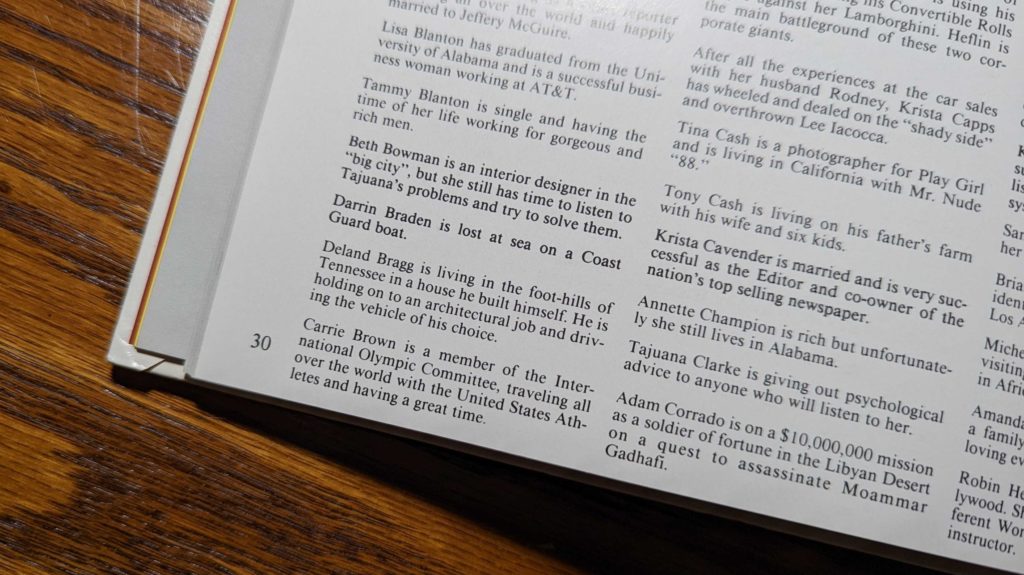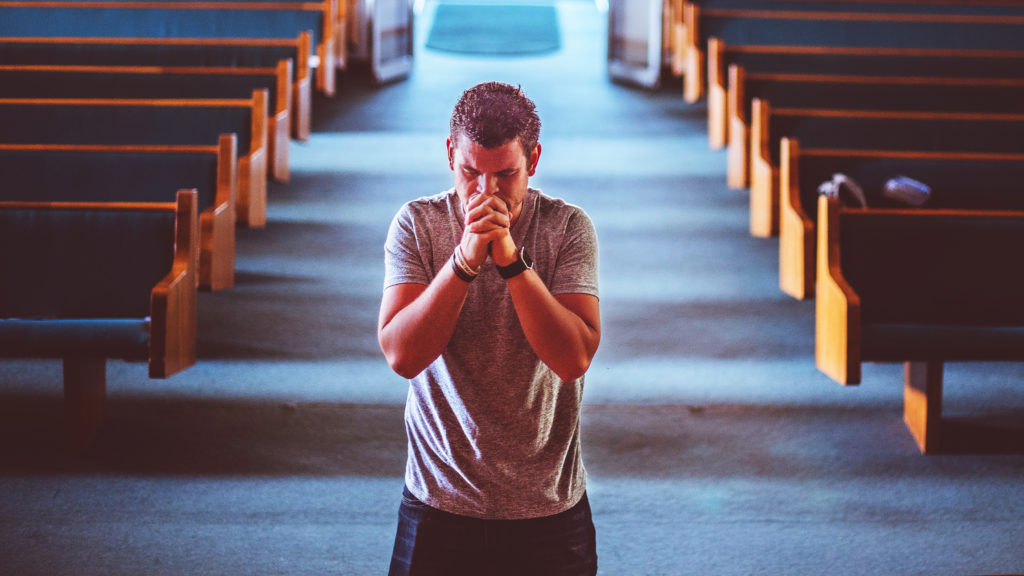It was as if the verse had been penciled into the Gospel of Luke when I wasn’t looking. Had it really been there all along?
“Zaccheus stopped and said to the Lord, ‘Behold, Lord, half of my possessions I will give to the poor, and if I have defrauded anyone of anything, I will give back four times as much” (Luke 19:8).
The Gospel According to Luke — written by the only Gentile author in the New Testament who was described by Paul as the “beloved physician” (Col. 4:14) and known for being a detailed historian — has been a consistent part of my readings since becoming a Christian a little more than 25 years ago. With the theme of the book focused on Christ as the perfect and compassionate Son of Man offering salvation to the whole world, it became a favorite book of mine almost immediately.
Journalist-like
Luke, who also wrote the Acts of the Apostles, acknowledges in Luke 1:2 that he was not an eyewitness of the life of Jesus Christ but his writings are extremely detailed.
I appreciate Luke’s style. He reminds me of an investigative journalist as he dives in deep, consulting as many eyewitnesses as he can find, keeping copious notes and working hard to tell the full story.
Thoroughness
He did thorough research and sought to totally understand the story before writing about it. You can always tell when a journalist doesn’t understand the story he or she is writing about because you (as the reader) don’t understand it either. Luke is careful to avoid this pitfall in his writing.
While a journalist might not choose to go with a chronological approach, this seemed to work best for Luke (1:3) who undoubtedly had an overwhelming amount of content to weave together in a readable form.
Life lessons
The Gospel of Luke has helped me learn more about Jesus and understand His teachings. The Lord’s Prayer in Chapter 11 and the Sermon on the Mount in Chapter 6 as well as the 35 parables (19 unique to Luke) have continued to challenge and grow me in my discipleship journey.
And while the book has helped me understand so much of Jesus’ life and the various ethics, values and morals of the Christian life as well as the basic ways we as believers should live, Zaccheus’ decision to make right his wrongs slipped past me — at least until I truly needed to see it.
About two years ago God began to disclose some dark places in my heart and the conviction to deal with them was strong enough to lead me deeper into Scripture to seek the proper path. It all had to do with forgiveness — forgiveness of those who had hurt me and seeking forgiveness from those I had wronged.
No limit on forgiveness
The list was a manageable length but that didn’t make it any easier. Every conversation was going to be hard.
Luke — who had carefully researched and documented his book, which is thought to have been written between 59 and 62 A.D. — said in 17:3–4 we are to forgive our brother (or sister). And there is no limit to how many times we should forgive him or her no matter how many times he or she sins against us.
There were eight people on my list to forgive and this passage burned in my mind. I started down my list right away and checked off four within the year and worked through the other four this past year.
And wouldn’t you know it, within days of being free, I ended up with another exercise in forgiveness, and just a few weeks after that I encountered a hurt that knocked the breath out of me — one that I’m currently working through, trying to reach the point of forgiveness.
Seeking forgiveness
Of course the journey of learning to forgive others uncovered my own wrongdoings that need forgiving. Five people came to mind right away. I sought out the first three people immediately and asked for forgiveness. The other two were a bit harder, but I worked through them.
In all of the forgiving and asking for forgiveness I realized God is faithful to show us where we need work if we will pay attention. And Luke shows us the complete picture of what forgiveness means. It is not only about making amends and seeking forgiveness but also about being willing to truly forgive without holding a grudge. Matthew 18:21–35 provides another great lesson in forgiveness, reminding us that we are to forgive others as God has forgiven us.
Not always easy
Still I’m the first to admit that knowing we should forgive when we have been wounded doesn’t take the difficulty away of actually being able to do it.
C.S. Lewis said, “Everyone says forgiveness is a lovely idea until they have something to forgive.”
Which is harder for you — forgiving someone who has hurt you or asking for forgiveness when you’ve hurt someone else?
_______________________________________________
Rashional Extras – George Wallace on forgiveness
By Michael J. Brooks
Four-term Alabama governor George Corley Wallace Jr. will always be known for his staunch segregationist views held early in his career. What’s not talked about as much is how he later changed his views and how he forgave the man who put him in a wheelchair for the last 26 years of his life.
While campaigning for president in 1972, Wallace was the target of an assassination attempt by Arthur Bremer and was paralyzed from the waist down as a result.
It was in 1995 that Wallace talked most openly about his journey in asking for forgiveness for his former views and forgiving Bremer for what he had done.
“I was taught that segregation was best for both races. But then, a few years ago, I decided it wasn’t,” Wallace told the late John F. Kennedy Jr. in the article “George Wallace — The Country’s Most Famous Former Segregationist Talks to John Kennedy about Race and Redemption,” which ran in the October/November 1995 issue of George magazine. “My conscience said it was wrong. Wrong, wrong, wrong … and now segregation’s gone. Good riddance,” he said.
Finding peace about his previous views and actions came in the form of asking for forgiveness, and finding peace about his paralysis came in the form of granting forgiveness, he noted.
“I forgave Arthur Bremer a long time ago,” he said in the 1995 article. “I never hated him at all. In fact, I prayed for him,” he said.
Wallace’s personal aide and spokesman, David Azbell, explained how Wallace communicated his forgiveness to Bremer.
Wallace sent a letter to Bremer in the Maryland Correctional Institution-Hagerstown on Aug. 2, 1995, that said in part: “Your shooting me in 1972 has caused me a lot of discomfort and pain. I am a born-again Christian. I love you. I have asked our Heavenly Father to touch your heart and I hope that you will ask Him for forgiveness of your sin.”
Azbell said Wallace wrote the letter because he believed forgiveness is so much a part of Christian faith. The warden confirmed the letter was received by Bremer but Wallace never heard from Bremer. Wallace died Sept. 13, 1998, at the age of 79.
“Have you ever decided not to forgive someone who hurt you? Scripture shows us through the life of Tamar that when we decide not to forgive an offender, we are the ones who will suffer the consequences, hurting ourselves and often those we love.”
Denise George
“Learning to Forgive Those Who Hurt You”
“Then Peter came and said to Him, ‘Lord, how often shall my brother sin against me and I forgive him? Up to seven times?’ Jesus said to him, ‘I do not say to you, up to seven times but up to 70 times seven’” (Matt. 18:21–22).
“Let all bitterness and wrath and anger and clamor and slander be put away from you, along with all malice. Be kind to one another, tenderhearted, forgiving one another, as God in Christ forgave you” (Eph. 4:31–32).
“Forgiveness is an act of the will and the will can function regardless of the temperature of the heart.”
Corrie ten Boom






Share with others: